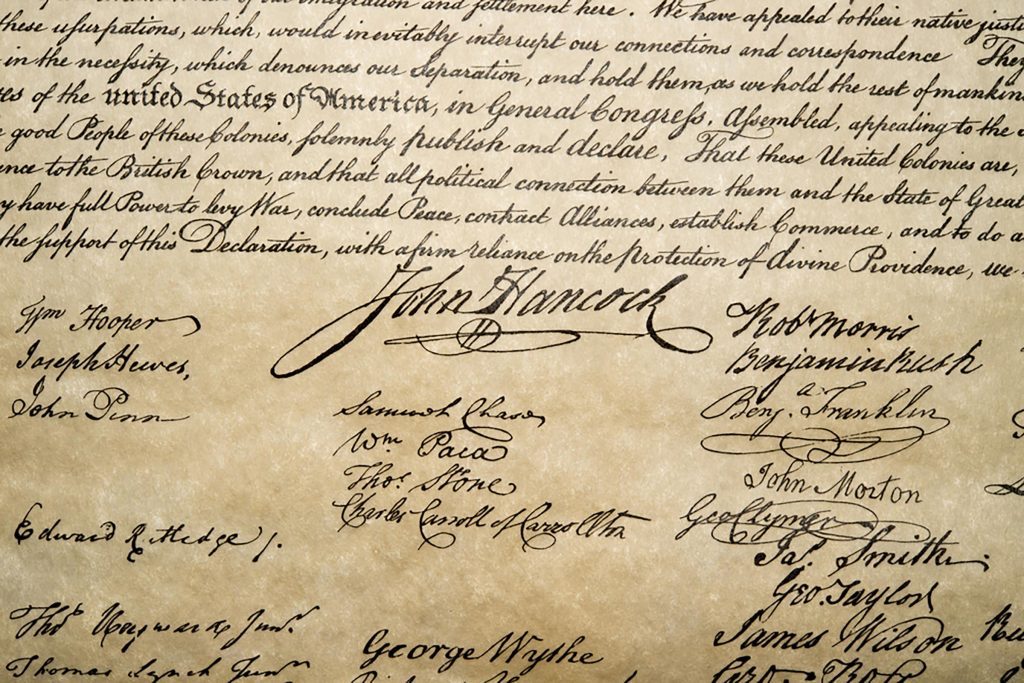 Recently I was standing in line at the local pharmacy to pick
up a prescription. A couple of elderly women were in line in front of me. One
was younger than the other so I assumed it was a mother and daughter. The
daughter was helping her mother get around. The prescription was for the older
woman, and the pharmacy tech asked her to sign the screen. She held up her hand
and it had a cast on it, and she said she was right handed. The tech said it
didn’t matter what the signature looked like, he just needed to sign for it.
“But it won’t look like my real signature,” the woman said. “It doesn’t
matter,” the tech said. “You could have her sign for it if you want.” The woman
said she would try. She commented that it didn’t look like her signature.
Recently I was standing in line at the local pharmacy to pick
up a prescription. A couple of elderly women were in line in front of me. One
was younger than the other so I assumed it was a mother and daughter. The
daughter was helping her mother get around. The prescription was for the older
woman, and the pharmacy tech asked her to sign the screen. She held up her hand
and it had a cast on it, and she said she was right handed. The tech said it
didn’t matter what the signature looked like, he just needed to sign for it.
“But it won’t look like my real signature,” the woman said. “It doesn’t
matter,” the tech said. “You could have her sign for it if you want.” The woman
said she would try. She commented that it didn’t look like her signature.
The tech, who was young enough to be at least her grandson
if not her great grandson, may not have understood what underlay the woman’s
concern. She grew up in a world in which a signature meant something. When you
signed a document you made sure it was an accurate representation of your
signature. The more important the document, the more care you took with your
signature. You might even pause for a second or two and soak in the
significance of your signature. I often do when I am signing a marriage license after I have officiated at a wedding. My signature certifies that the two people were legally married by me. The legal implications of my signature on that license are tremendous.
Now, it doesn’t matter if your electronic signature
resembles anything other than the scrawl of a two year old trying out a crayon
for the first time before eating it. In this vignette I was reminded of the
vast difference between the two worlds of these two people. One just wanted her
to sign the screen so she could take the medication. The other was concerned
about the accuracy of her signature.
It may seem a small thing, and in and of itself it is, but
the difference is striking. This highlights the overlap we still have of people
who lived and worked before the digital age, and those who grew up with it and
take it for granted, and at times get impatient with geezers like me who
sometimes are confused by it.
I think about my parents’ generation, growing up, getting an
education and raising a family all before the current advent of digital
technology. At that time a signature meant something. Both my parents had
beautiful copperplate signatures. My signature, on the other hand, is a train
wreck. I’m a perfect candidate to sign the screen. Nobody can read it on paper
either so why would it matter on screen?I remember moving to another state and applying for a drivers license, and I signed the form. The clerk complained that she couldn't read it. I said it was my signature. She replied that it wasn't my signature unless it was legible. I took the form back, printed my name in large block letters and handed it back to her. She was satisfied.
Signatures are an individual thing. Some signatures are
famous for the documents that they appear on. John Hancock’s signature is still
barely visible on the original Declaration of Independence, which has suffered
abuse after abuse since it was signed 243 years ago, and as a shadow of its
former self now sits enshrined in inert gas at the National Archive. Many of
the signatures have either totally disappeared or have only traces remaining.
We all know that Thomas Jefferson, John Hancock, and Benjamin Franklin (among
others) signed the document so does it matter if their signatures have
disappeared? Does it make the document less valid? It’s a question to ponder.
For many historical figures the reproduction of a signature
is one way to indicate the individual character of a famous person, along with
a photograph or portrait. It’s their own rendering of their own name. What can
be more individual than that? My handwritten version of John Hancock’s name
would not be his signature. His, written with the comment that he wrote it
large enough so that King George III could read it without his spectacles, is
most assuredly his own name.
This is all in the background of the vignette I witnessed
and the window that it is, a window into a world that is vanishing one death at
a time. Are we entering an age when nothing means anything anymore? I wonder.
No comments:
Post a Comment